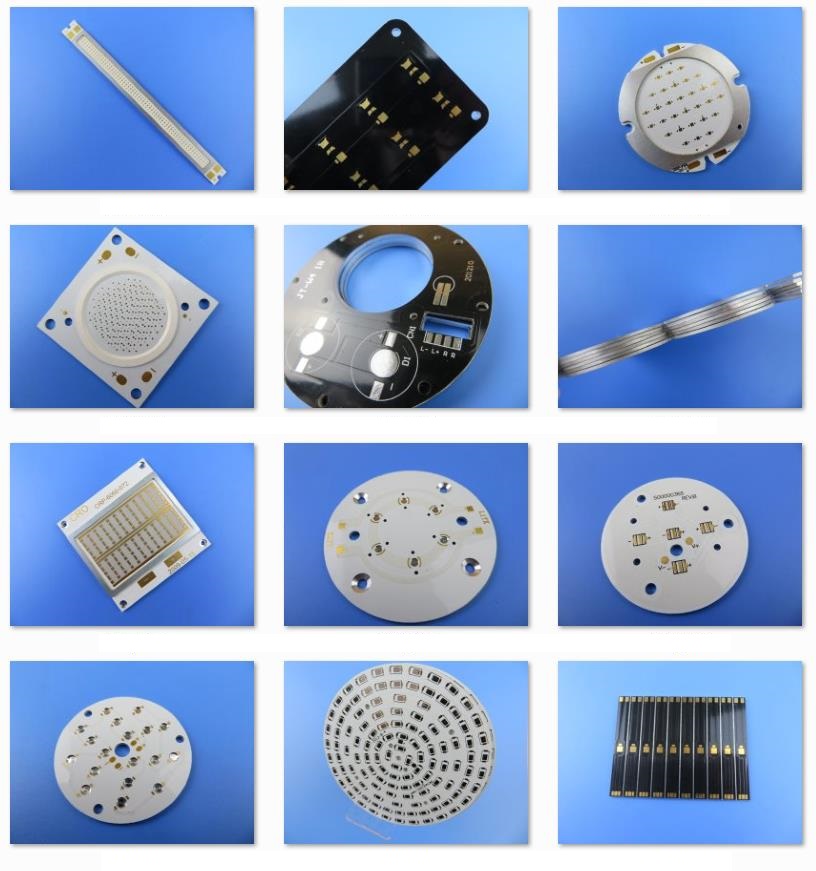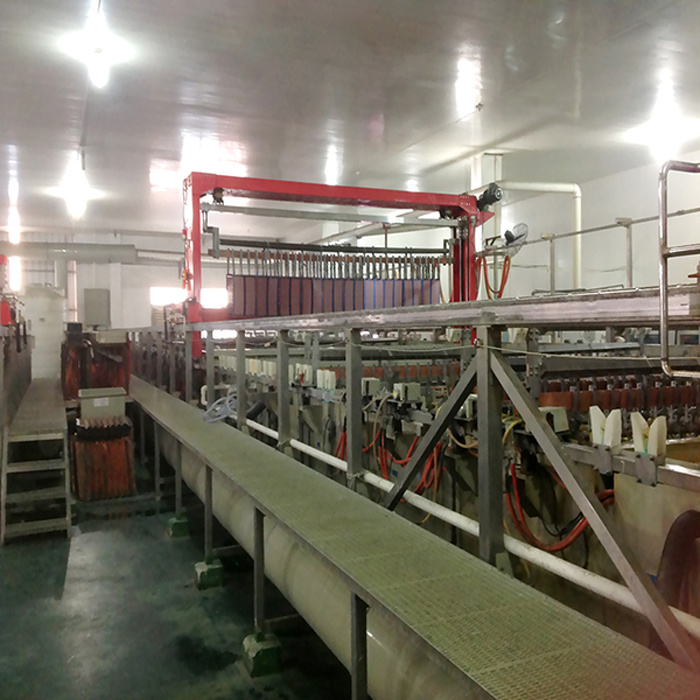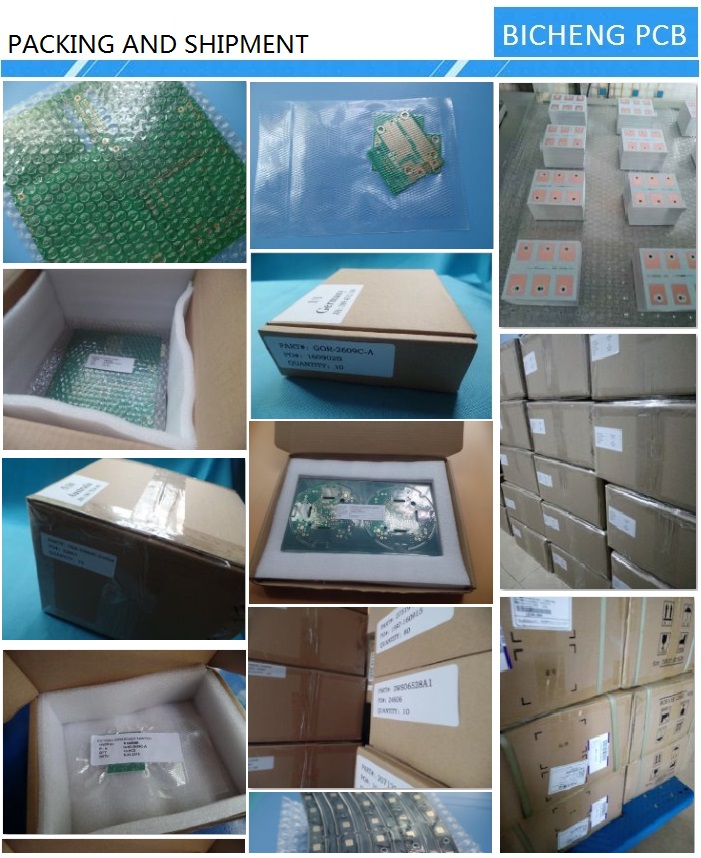| Surface Finishing: | HASL |
|---|---|
| Board Thickness: | 1.2mm |
| Copper Thickness: | 1.0 OZ |
| Base Material: | 2W/MK dielectric material 75um |
| Brand Name: | Bicheng Enterprise Limited |
| Min. Line Spacing: | N/A |
| Min. Line Width: | N/A |
| Min. Hole Diameter: | N/A |
| Model Number: | BIC-828-V828 |
| Place of Origin: | China (Mainland) |
| Solder mask Colour: | White |
| Silkscreen Color: | Black |
| TEST: | 100% Electrical Test prior shipment |
Quick Details
Specifications
2W/MK Aluminum Core PCB | IMS Printed Circuit
Board
(PCB's are custom-made products, the picture and parameters shown are just for reference)
the most common MCPCB construction consists of the following 3 layers:
1) A metal substrate, typically aluminum. In some applications, a copper substrate is more
Appropriate due to its high thermal conductivity than aluminum (401W/MK versus 237 W/MK)
but more expensive.
2) Epoxy dielectric layer. this is the most important layer in the MCPCB construction as it
Affects the thermal performance, electrical breakdown strength, and, in some cases, the
Solder joint performance of the MCPCB system. the typical thermal conductivity of the
Dielectric layer on a MCPCB is 1W/MK. A higher value is better for good thermal performance.
A thinner dielectric layer is better for thermal performance as well but can negatively impact
the ability of the MCPCB to withstand a high potential test to meet minimum electrical safety
Standards as required in certain lighting markets. the typical dielectric thickness layer is 100m.
3) Top copper layer. A thicker copper layer improves heat spreading into the PCB but may
Pose challenges for PCB manufacturers when fabricating narrow traces or spaces. A copper
Thickness of 1oz (35m) or 2oz (70m) is common.
Metal Core PCB Capability 2019
MCPCB

MCPCB

PCB Pattern plating


Board
(PCB's are custom-made products, the picture and parameters shown are just for reference)
the most common MCPCB construction consists of the following 3 layers:
1) A metal substrate, typically aluminum. In some applications, a copper substrate is more
Appropriate due to its high thermal conductivity than aluminum (401W/MK versus 237 W/MK)
but more expensive.
2) Epoxy dielectric layer. this is the most important layer in the MCPCB construction as it
Affects the thermal performance, electrical breakdown strength, and, in some cases, the
Solder joint performance of the MCPCB system. the typical thermal conductivity of the
Dielectric layer on a MCPCB is 1W/MK. A higher value is better for good thermal performance.
A thinner dielectric layer is better for thermal performance as well but can negatively impact
the ability of the MCPCB to withstand a high potential test to meet minimum electrical safety
Standards as required in certain lighting markets. the typical dielectric thickness layer is 100m.
3) Top copper layer. A thicker copper layer improves heat spreading into the PCB but may
Pose challenges for PCB manufacturers when fabricating narrow traces or spaces. A copper
Thickness of 1oz (35m) or 2oz (70m) is common.
Metal Core PCB Capability 2019
| NO. | Parameter | Value |
| 1 | Type of Metal Core | Aluminum, Copper, Iron |
| 2 | Model of Metal Core | A1100, A5052, A6061, A6063, C1100 |
| 3 | Surface Finish | HASL, Immersion Gold, Immersion Silver, OSP |
| 4 | Thickness of Surface plating | HASL: Sn>2.54M, ENIG: Au 0.025-0.1m, Ni 2.5-5m |
| 5 | Layer Count | 1-4 Layers |
| 6 | Maximum of Board Size | 23" x 46" (584mm1168mm) |
| 7 | Mininum of Board Size | 0.1969" x 0.1969" (5mm5mm) |
| 8 | Board Thickness | 0.0157" x 0.2362" (0.4-6.0mm) |
| 9 | Copper Thickness | 0.5OZ(17.5m),1OZ(35m),2OZ(70m) 3OZ(105m),4OZ(140m) to 10oz (350m) |
| 10 | Minimum Track Width | 5mil (0.127mm) |
| 11 | Minimum Space | 5mil (0.127mm) |
| 12 | Minimum Hole Size | 0.0197" (0.5mm) |
| 13 | Maximum Hole Size | No limit |
| 14 | Minimum Holes Punched | PCB thickness <1.0mm: 0.0394" (1.0mm) |
| PCB thikness 1.2-3.0mm: 0.0591" (1.5mm) | ||
| 15 | PTH Wall Thickness | >20m |
| 16 | Tolerance of PTH | 0.00295" (0.075mm) |
| 17 | Tolerance of NPTH | 0.00197" (0.05mm) |
| 18 | Deviation of Hole Position | 0.00394" (0.10mm) |
| 19 | Outline Tolerance | Routing: 0.00394" (0.1mm) |
| Punching: 0.00591" (0.15mm) | ||
| 20 | Angle of V-cut | 30, 45, 60 |
| 21 | V-cut Size | 0.1969" x 47.24" (5mm1200mm) |
| 22 | Thickness of V-cut Board | 0.0236" x 0.1181" (0.6-3mm) |
| 23 | Tolerance of V-cut Angle | 5 |
| 24 | V-CUT Verticality | 0.0059" (0.15mm) |
| 25 | Minimum Square Slots Punched | PCB thickness < 1.0mm: 0.0315" x 0.0315" (0.8 x 0.8mm) |
| PCB thickness 1.2-3.0mm: 0.0394" x 0.0394" (1.0 x 1.0mm) | ||
| 26 | Minimum BGA PAD | 0.01378" (0.35mm) |
| 27 | Minimum Width of Solder Mask Bridge. | 8mil (0.2032mm) |
| 28 | Minimum Thickness of Solder Mask | >13M (0.013mm) |
| 29 | Insulation Resistance | 1012Normal |
| 30 | Peel-off Strength | 2.2N/mm |
| 31 | Solder float | 260 3min |
| 32 | E-test Voltage | 50-250V |
| 33 | Thermal Conductivity | 0.8-8W/M.K |
| 34 | Warp or Twist | 0.5% |
| 35 | Flammability | FV-0 |
| 36 | Minimum Height of Component indicator | 0.0059"(0.15mm) |
| 37 | Minimum Open Solder Mask on Pad | 0.000394" (0.01mm) |
MCPCB
MCPCB
PCB Pattern plating



